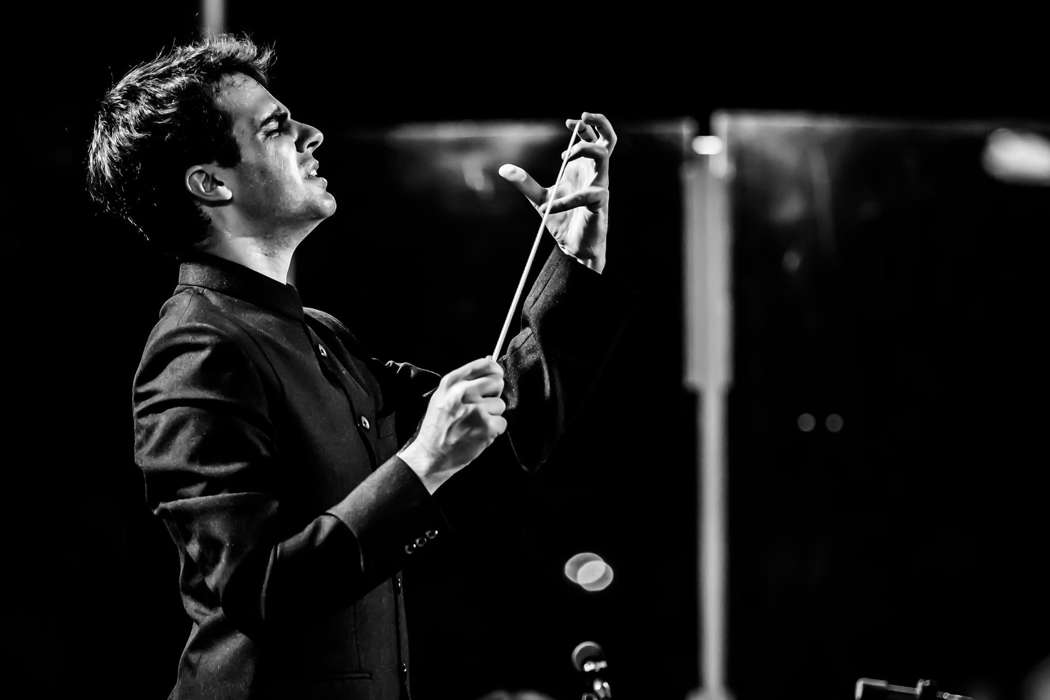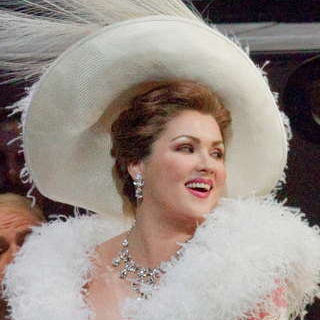- Imo Holst
- Amy Freston
- Stanford
- Julius Stockhausen
- Sibelius: Luonnotar
- Beadlesound AGC
- Christine Brewer
- Schubert: Octet
An Almost Physical Impact
MIKE WHEELER is impressed with the return of Dinis Sousa and the Royal Northern Sinfonia to play Prokofiev, Mozart and Beethoven
The last time Royal Northern Sinfonia and its then recently-appointed Principal Conductor Dinis Sousa, appeared at the Royal Concert Hall, in 2021, I commented that the orchestra had clearly taken to him in a big way. To judge from their recent visit [Royal Concert Hall, Nottingham, UK, 20 February 2024], the relationship has now firmly bedded down.
Balletic from the word go, Prokofiev's 'Classical' Symphony was kept light on its feet, with the various instrumental parts neatly dovetailed. The first violins' subsidiary theme, with its two-octave skips, couldn't help but raise a smile. The violin theme at the start of the second movement glided in elegantly, and the exact balance between pizzicato strings and bassoons in the following passage spoke volumes for the care that evidently went into preparing the performance. The Gavotte was both sturdy and graceful, while the delicate trio section seemed barely to touch the ground. The helter-skelter finale had an infectious let-off-leash impetuousness.
Mozart's Clarinet Concerto received a less extrovert performance than some I've heard, with a gentle orchestral opening hinting at the poignancy to come. Julian Bliss' softly-spoken first entry confirmed the impression. His playing was withdrawn one moment, nimble and puckish the next, while also savouring the basset-clarinet's fruity, buzzy low notes. (Why would anyone now want to do without them by playing the work on a conventional instrument?)
Is the second movement Mozart's saddest piece? Here, it had an operatic quality that certainly seemed to echo, say, Ilia's lament at the start of Idomeneo, or the Countess's in The Marriage of Figaro. The main theme's final statement was so intensely withdrawn we hardly dared breathe. The third movement was lively, but still with traces of sadness, and the bubbly ending was well-earned. The whole performance was both deeply thoughtful and deeply felt.
The opening of Beethoven's 'Eroica' Symphony, too, gave us clear notice of what was to come, launching a first movement that fairly crackled with energy. There was precision in the playing, but to expressive ends, and the whole thing seemed ready to boil over at any moment. The dynamic range, from breathless near-silence to shattering fortissimo in a matter of seconds, had an almost physical impact. The dissonant mid-movement climax was piercing, and the new woodwind theme that emerged from it was as strange and unpredictable as Beethoven no doubt intended. At the approach to the recapitulation, the solo horn (Peter Francomb), jumping the gun with the main theme before everyone else is ready, sounded remote, barely audible, even, which only added to the tension.
The Funeral March, solemn but not sombre, was marked from the beginning by a satisfyingly grainy string sound. The raw emotion came across with no need for exaggeration - the outbursts of grief in the later stages were given space, and the music's final breaking-apart was devastating. The lean, racing account of the Scherzo got off to an edge-of-the-seat hushed start. The three horns in the Trio section had a kind of bucolic exuberance, sounding for all the world like a jolly drinking song. Instead of going straight into the finale, as some conductors do, Sousa allowed a few moments for the dust to settle, before the strings' stealthy pizzicato opening led to an account of the variations which suggested nothing so much as Beethoven simply revelling in his creativity.

Dinis Sousa. Photo © David Rodrigues
We were swept along by the building momentum and exuberance; at one point, the clarinettists raised their instruments high over their stands for their sound to sail over the rest of the orchestra. The slow section sounded more like an echo of the Funeral March than I've previously heard, after which there was no holding back in the race to the end. I don't think I've ever heard this movement sound so much like Beethoven simply having fun.
Copyright © 26 February 2024
Mike Wheeler,
Derby UK





